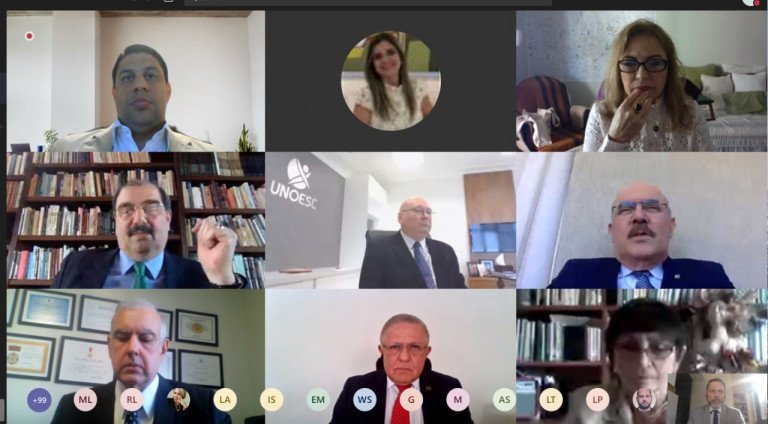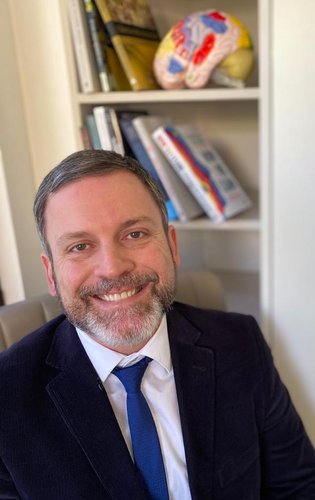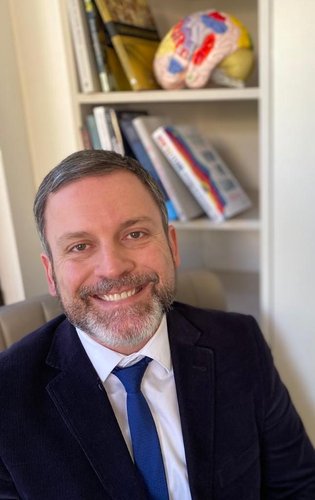InsCer researcher is sworn in to the National Education Council
The researcher at the Brain Institute of RS and professor at the School of Sciences and Life at PUCRS, Augusto Buchweitz, has just been sworn in as a member of the National Education Council (CNE), an organ linked to the Ministry of Education ( MEC).
From today and for the next four years, Prof. Dr. Augusto Buchweitz will join the staff of the Basic Education Chamber of the CNE, along with seven new advisers who join other advisers still in office. The appointment is an acknowledgment of the professional's years of work with research in the field of neuroscience, literacy and learning. The inauguration took place virtually, at 3 pm this Tuesday, August 4th.
The duties of the CNE are to advise the Ministry of Education, and the Council is responsible for formulating and evaluating the National Education Policy, ensuring the quality of education in the country. But personally, Buchweitz hopes to bring specific contributions to these assignments: “I intend to contribute to (Neuro) Science of Reading and take a scientific approach to inform decisions and proposals, especially when it comes to literacy and learning in the early years”, he observes.
The researcher intends to apply the knowledge acquired in the academic environment in favor of all basic education in the country, especially with regard to the literacy process, so that children, from pre-school age, have access to the teaching of relations between letters and sounds, the so-called phonic instruction. "This is the best - most effective and most effective - way to become literate", he says, and adds that there is a scientific basis for this premise.
Regarding phonic instruction, the new adviser argues that it is not a method, since it would be a simplification, referring to a protocol that does not exist and that causes an unproductive reaction and surrounded by dogmas. “The issue is not a method. What is advocated for literacy in Brazil, and is defined in the National Literacy Policy, is that fundamental skills and knowledge and the relationships between letters and sounds are systematically taught in pre-school and elementary school ”, points out Buchweitz.
Neuroscience has also contributed to this discussion related to the reading process, with recent studies showing that the activation of the brain for oral language (of sounds) and for reading are more similar in those people who read well; that is, when you read well, oral and written language (letters and sounds) are mixed in the brain. “Evidence from reading science shows that phonics instruction and the teaching of fundamental skills, together, greatly increase the likelihood of better literacy outcomes (what we call the effect size). This evidence is exhaustive, robust and comes from the 1960s ”.
Because, says the researcher, learning to read does not happen naturally. “The Science of Reading and Neuroscience show that this learning is not natural for the human brain, it depends on adaptations of our neural networks and it is not by guesswork or hypothesis. The defense, therefore, is to reformulate the science-based literacy paradigm. Again, what is advocated is the clear instruction of a set of fundamental skills and knowledge and the relationships between letters and sounds. And this teaching need not be boring, it can and should be, yes, playful ”.
Augusto Buchweitz
He works as a professor at the School of Health and Life Sciences at PUCRS and a permanent member of the postgraduate programs in Psychology, Medicine and Letters at this university, where he teaches master's and doctorate. He is a researcher at the Brain Institute of Rio Grande do Sul, where he created and coordinates the learning clinic of the ACERTA project (assessment of children at risk of learning disorders). Since 2013, this clinic has evaluated more than 800 children with learning difficulties in reading. He coordinated the VIVA (Life and Violence in Adolescence) project in a consortium with the Inter-American Development Bank and the Autonomous University of Honduras, where, for the first time, the effects of violence on the cognition and brain function of adolescents were studied. He is also an affiliated researcher at Haskins Laboratories, Yale University and the Haskins Global Literacy Hub, a worldwide consortium of reading scientists seeking to develop multinational literacy projects. His research is focused on investigating the neural and cognitive foundations of learning to read and dyslexia, as well as investigating the cognitive and environmental factors that influence development and learning.
National Council of Education (CNE)
The CNE's mission is the democratic search for alternatives and institutional mechanisms that make it possible, within its sphere of competence, to ensure the participation of society in the development, improvement and consolidation of quality national education. More information about the board here .




